May the Force be With You


“Look! The people blocks are in a line and they crash at the bottom, just like when we play on the slide!”
This is a lightbulb moment as Evelyn transfers knowledge gleaned from a previous play experience into her current hands-on learning. A chain-reaction domino fall during today’s block play reminds Evelyn of waiting in line, forming a chain with her friends and banging into her friends at the bottom of the slide.
Learning is not learning unless it is applied to something real. This is the key to unlocking an understanding of math, science and reading skills.
Evelyn is beginning to “see” and retain her play epiphanies, building a rich experiential foundation that will help her make the most of her learning adventures today and in the years to come.
Soon, more young explorers join Evelyn at the table and our outdoor classroom grows quiet as the children engage in their own investigations with their favorite, people-shaped blocks.
We love blocks for so many reasons, but mainly because block play naturally adapts to the developmental level of the child. This is a great time to document the different math and science standards that our early learners are meeting. It’s also a good time to observe the mentoring and scaffolding that takes place as our young friends take their skills to the next level.



Our morning of block play turns out to be a great opportunity for the children to hone their fine-motor and problem-solving skills while developing traits such as patience and determination.
Because the blocks (or dominoes) do not have to be evenly spaced to set up a chain reaction, this is an activity that even our two-year-olds can master.
“Ugh, I am so frustrated!” declares Noah with a laugh. The children use the word “frustrated” many, many times during the activity because they enjoy mastering a new word (and because every other child at the table is using it), rather than as a true expression of frustration.
This is play! It is also a wonderful opportunity to share math and science vocabulary words such as force, push, speed, predict, hypothesis, distance, length and probability. I toss these words out like seeds to be planted for future understanding. Some of the children grasp these vocabulary words immediately and incorporate them into a new lexicon that reflects their growing understanding of mathematical and scientific principles.
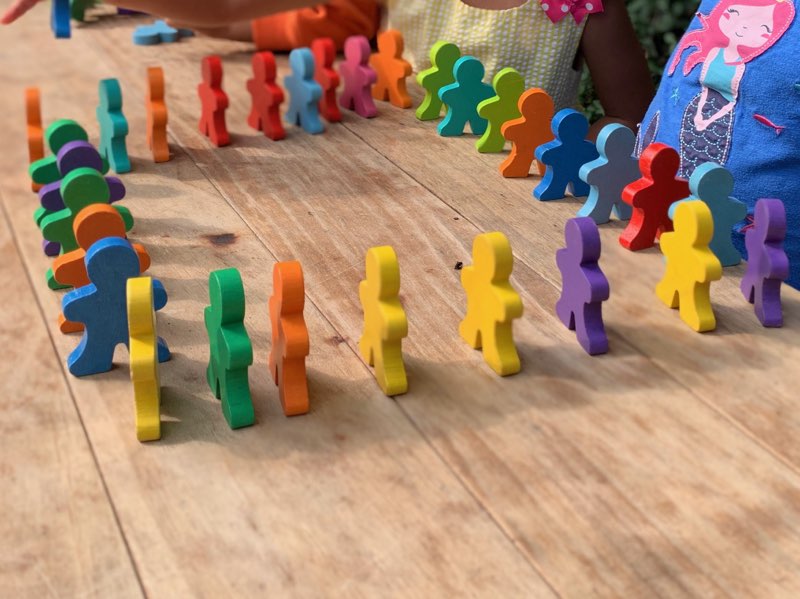
“Hey! You are in my way!” shouts Eve as her line of block people intersects with Sally’s. I watch as Sally takes notice with an air of quiet concentration. “I know! Let’s make a square!” Eve shouts again before Sally can problem-solve her way out of the temporary crisis. Suddenly, we have collaboration and a new plan. We are creating shapes and timing our push-offs to coincide with those of our friends. We have teamwork and data analysis to see if the plan will work, where the blocks will meet and who will “win”!
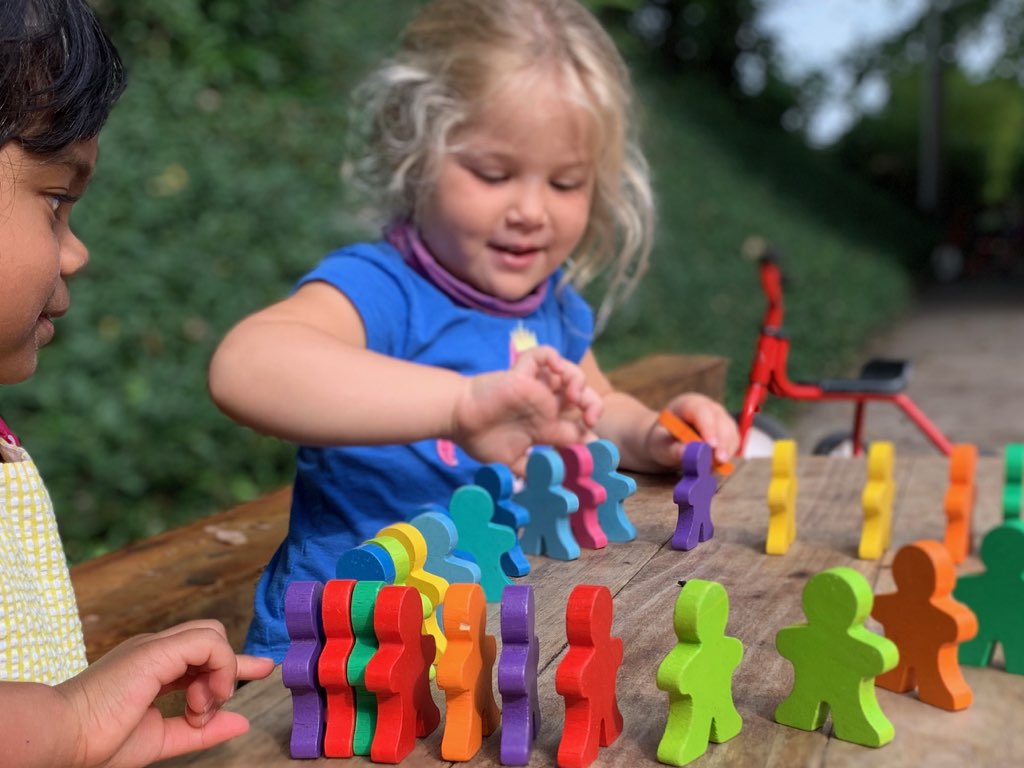
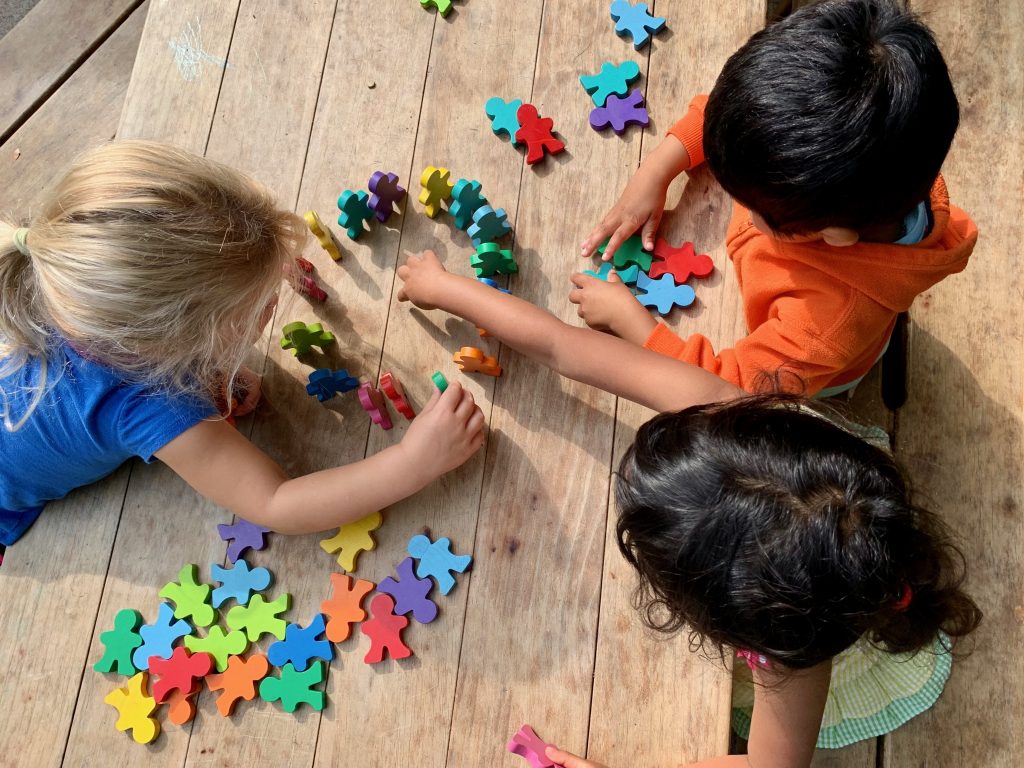
Our morning of block people play takes off in many directions. They are counting and creating lines and curves and talking about direction and using words like far, near, behind, in front of and flat. This is geometry! They are also using words like never, impossible, probably and always—the language of data analysis and probability.
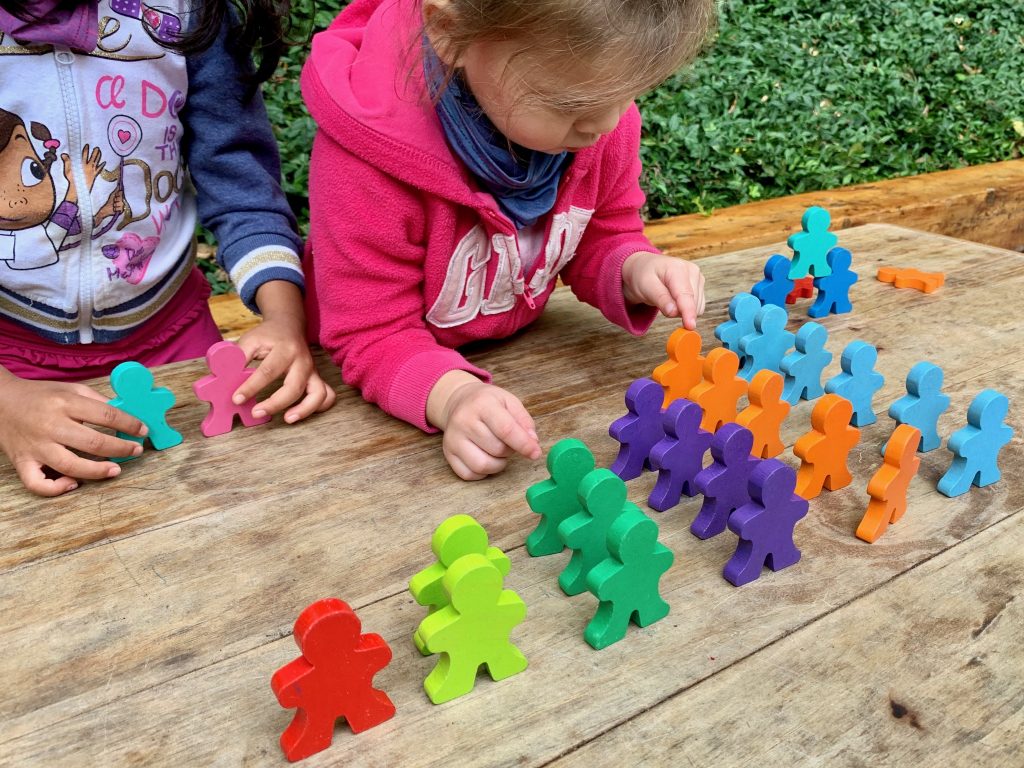
Jamie is quietly working on a whole new investigation. He has moved on to stacking, which takes a bit more patience and determination, and he really is getting frustrated! He has a plan and he knows what he wants to do, but the slightest movement on the table sends his circus act crashing down.


Jamie is our busy, rambunctious, always thinking, always moving friend. When he slows down enough to work on a project like this stacking challenge, he gives it the same 100% effort that he gives to nearly every activity in his day.
When we give children the materials and the time to explore and play, we can relax and remember that this is learning. This approach helps form the successful students and problem-solvers of the future!
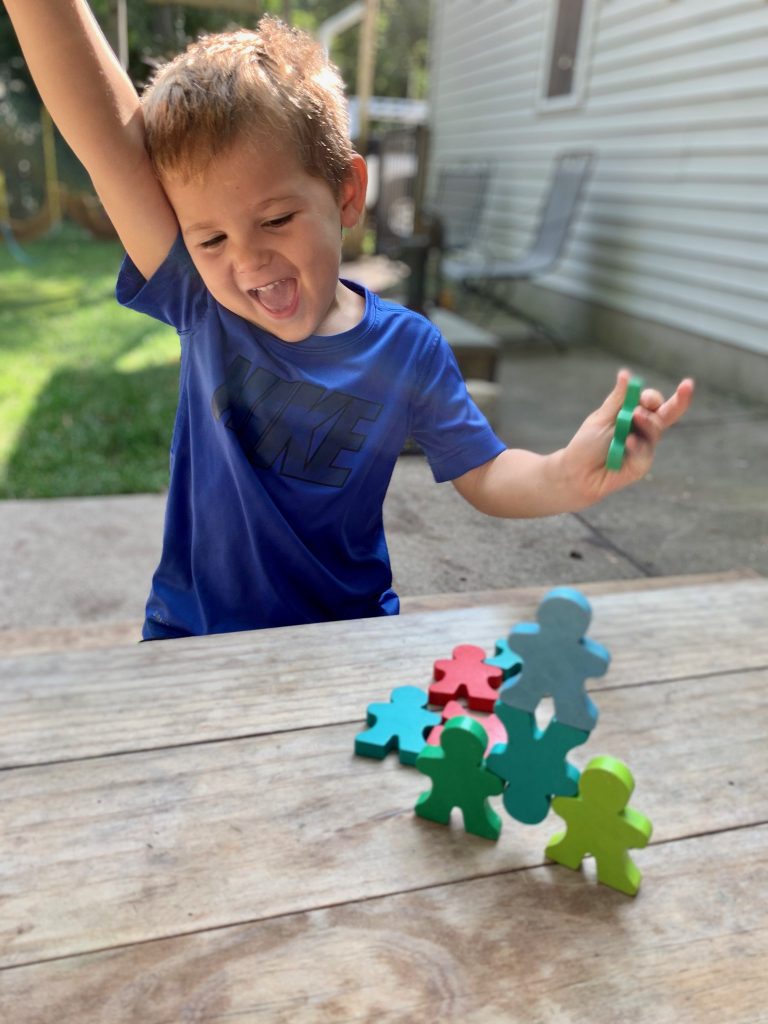
Teamwork is such an important thing for the kids to learn and I like how it is used with these block people.
This activity definitely promotes teamwork. It also useful for color patterns and counting.
Children seem to come up with many ideas It will also teach them problem solving when not all the people fall at once in some different shapes they make
the children are using the bock people to problem solve by lining the block people up in a color pattern but also trying to see if they can knock them over in a domino effect one causes the other to fall by pushing it over into the next one in line
I like how these colorful block people can help kids add and subtract to learn math in a fun way!
great Idea
No comment
I like that the children were able to use inside toys for outside play and a comparison was made.
Great comparison – dominoes to a slide. Funny what kids learn – it’s so great to be a teacher.
The children are having fun by playing with the block people toys. It’s a great opportunity for them to use their fine motor and problem solving skills when playing with these blocks. For example when the children place each people block in front of each other and space them out so they don’t topple over it takes patience and the ability to focus by not being distracted by the other children.
What a fun way to promote teamwork while teaching the children many math concepts.
I love how something simple as block people can elicit so much learning! I love using scientific words with children too. They soak up everything.
I love how such simple blocks can elicit so much learning. Children soak up so much knowledge with their play.
Amazing simple activities to reinforce their mottor skills as well as patterns. Thanks.
This activity is great for measurement and once again outdoors is a plus. The last boy stacking the people could be measuring how many people it takes to stack a high structure. The connection between the people being in line how the children get in line is also a way of measuring how many people in front of a certain child and how many people behind that same child.
Love that these children can do many things with their people.